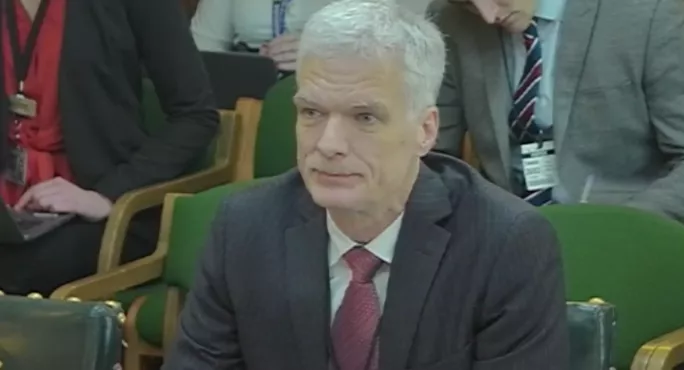Technology will require teachers to move from teaching knowledge to having a “social relational role” with pupils, the head of the Programme for International Student Assessment (Pisa) has told MPs.
Andreas Schleicher, the coordinator of Pisa for the Organisation for Economic Co-operation and Development, warned that this meant teaching would become a “much harder role”.
Giving evidence to the Commons Education Select Committee’s inquiry into the fourth industrial revolution today, he was asked how the role of teachers would change in the future, as technology transformed society and the workplace.
Need to know: What is the fourth industrial revolution?
Opinion: We need a new curriculum for tomorrow's world
Revealed: Parents' fears about artificial intelligence in schools
Mr Schleicher said that “the delivery function of teachers, probably, you can digitise to a large extent”.
“I think what it means is that teachers will do a lot more on diagnostics, figuring out how different students learn, how different students learn best. They will be more of a coach, more of a mentor to students,” he added.
“I think that social relational role of teachers is bound to rise, and that’s something that particularly in countries in east Asia, but also Estonia and Finland, are doing really well in the sense that they have an environment where teachers feel responsible for students and invest whatever it takes to lead them to success, as opposed to delivering specific subject content.
“In the past, you prepared teachers once for a lifetime. In the future, teachers will need to upgrade their skills every day. If they want their students to be lifelong learners, teachers need to be lifelong learners.”
He suggested that imparting knowledge would no longer be teachers' central role: “The monopoly over knowledge – now students have access to the same knowledge that teachers have.
“The role of the teacher is the one that ‘I need to ensure that students develop that curiosity, that interest in the subject, learn on themselves’.
“That’s a very different, and a much harder role, as a teacher. It’s much easier to stand in front of a classroom and just teach what you know.
“It’s much harder to get students to become active learners, but in the future, that’s going to be the test of truth.”
Mr Schleicher said that being able to triangulate between different perspectives was a key skill that would distinguish humans from artificial intelligence, and added: “You learn that best when you learn in learning that is thematic, that is problem-based, that is project-based – those are the environments in schools, but they are hard to create.
“If you want students to learn across disciplines, teachers have to collaborate across disciplines, so it’s very demanding.”
He added that while curriculum changes in England had “in a sense” worked against this, the autonomy of academies meant that, “in principle, they could teach in very innovative ways in the UK”.
However, he said he was not sure to what extent such autonomy was used in practice.




